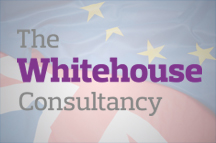 Full steam ahead
Full steam ahead
Michel Barnier has been formally appointed by the remaining EU member states to lead Brexit negotiations, starting from 19th June – a mere 11 days after the UK’s general election result. Although the election is still fairly likely to result in another Conservative government, living in a “never say never” era of politics does prompt ponderings about what it would be like for a newly appointed Prime Minister and Brexit Secretary to be heading to Brussels so soon. Barnier has stated that he does not want to imagine a breakdown of negotiations resulting in no deal between the UK and the EU, evidently wanting discussions to start off on a positive footing.
Taking the road less travelled?
Yet the possibility of that looks slim – Brexit Secretary David Davis took a less conciliatory tone in an interview with the Sunday Times, warning that the UK doesn’t “need to just look like we can walk away, we need to be able to walk away” if negotiations turn sour. Davis continued the UK’s protestations against paying a divorce bill to the EU, suggesting that paying as little as £1 billion would be unacceptable. It seems there is a growing chance that Davis vs. Barnier will not end well, with one negotiator placing the odds that the UK will leave without a deal at “over 50%”.
84,000 decrease in net migration
The Office for National Statistics has published statistics demonstrating that net migration to the UK fell by 84,000 in 2016 compared with 2015, resulting from 588,000 people immigrating to the UK and 339,000 people leaving. Of the number that emigrated, 250,000 were EU citizens, up from 117,000 EU citizens who left in 2015. The head of employment and skills policy at the Institute of Directors, Seamus Nevin,warned that employers “risk losing key members of staff in positions that cannot easily be replaced from the home-grown pool available.” The Conservatives will have breathed a sigh of relief at the figures, which put their target of reducing net migration to the tens of thousands within slightly closer reach (and makes their recommitment to the target in their manifesto seem marginally less futile).
Trust me, I’m Theresa May
Theresa May was quizzed by political journalist Andrew Neil at the beginning of the week on her manifesto policies, in an interview broadcast by the BBC. Unsurprisingly, May topped and tailed the interview by emphasising that the electorate should trust her to take forward Brexit negotiations over Jeremy Corbyn, hammering home the line that this is “the most crucial election I’ve seen in my lifetime, because it’s about getting Brexit negotiations right”. Despite being questioned five times on her previous statement that there would be “dire consequences” if the UK failed to get a good deal from negotiations, May remained tightlipped on what the consequences would be – and arguably not inspiring a great deal of confidence in her plan for Brexit. Jeremy Corbyn is due to face Neil tonight – will he put in a better performance?
Tailored for transparency
Ahead of talks formally getting underway, the European Commission has committed to ensuring a “maximum level of transparency” throughout negotiations, and will share documents including agendas for negotiating rounds and EU position papers. While this can be seen as a reaction to critics of the Commission’s transparency, which has been noted as a cause of Euroscepticism, the European Ombudsman Emily O’Reilly thinks it much more likely that the move is designed to ruffle Theresa May’s feathers. It’s well known by now that May keeps her cards incredibly close to her chest, so this “political play” is intended to be at odds with the secrecy which the PM has requested, and wholly underminesMay’s previous insistence that she would not give a “running commentary” on the talks. One point to the EU.
For more information on the Brexit process, the key people involved and the impact of major sectors, please visit our website.












